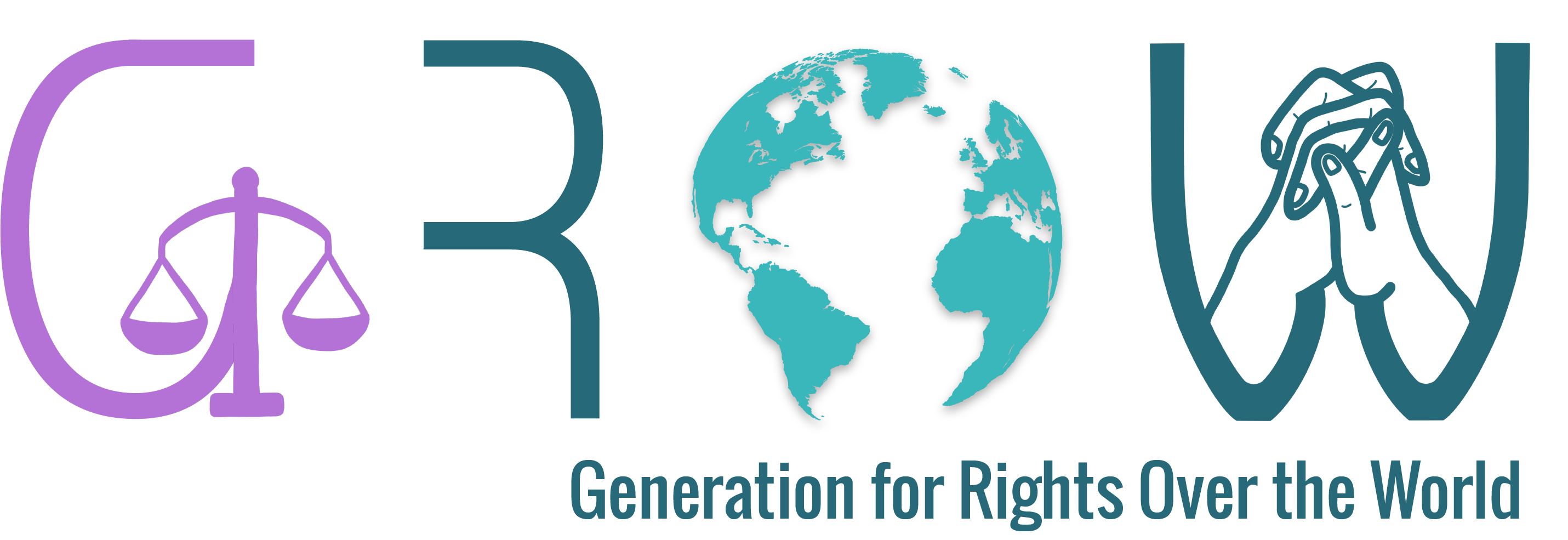Translated by Iman Seepersad
With the arrival of the summer holidays, many people start thinking about their next tourist destination. Some might be tempted by an unusual experience: voluntourism. This neologism, formed from the words “volunteering” and “tourism”, refers to a formula that allows people to travel while volunteering to help a so-called “disadvantaged” population within a local or international association. This type of holiday, set up by specialised agencies, has a cost: on average around €2,000 per week. Anyone over the age of 16 can take part in this adventure and offer their services, such as teaching English to Cambodians or building wells in Benin. In exchange, the agency organises guided tours and sometimes accommodation.
If on paper, the offer seems to be well-intentioned and increasingly attractive, the reality is far from being so rosy…
A practice inherited from colonialist codes
First of all, what is disturbing is the latent neo-colonialism behind these practices, as explained in the video “The Business of Humanitarian Tourism” by French AJ+. In other words, since the colonisation of the world by Westerners, the latter consider themselves responsible for helping people to develop by bringing (or imposing) their knowledge and cultural practices. Thus, those who are referred to as ‘neo-colons’ are people from ‘developed’ countries, deluded by prejudice and racist clichés, who think they are capable of bringing progress to ‘poor little Africans and Asians’. This is also known as the ‘white savior’ complex. It refers to the fact that white people see themselves as legitimate to help people in the South, but do not have the necessary knowledge of the local context or specific skills for the actions they propose. These individuals seek to promote themselves, for example through photos and publications on social networks, often with young children (in defiance of the right to privacy as set out in Article 16 of the Convention on the Rights of the Child). Humanitarian commitments are scripted, which allows the author of these actions to put themselves forward, in a position of hero, saviour or benefactor. Thus, as @Asiatitude explains on Twitter, humanitarian tourism (or voluntourism) is an ideology directly inherited from colonisation, as it “stems from the desire of developed society to save Third World countries from misery and poverty at all costs”. It is therefore a way of flattering the ego of white people, which the associations in question have clearly understood.
The art of maintaining misery: a pity business
In reality, very little money actually reaches those in need, contrary to what is originally stated. Attracted by this juicy business, the locals propose an offer that seeks to conform as much as possible to the demand, i.e. to the volunteers’ fantasies. In a 2017 Envoyé Spécial documentary on voluntourism, a meeting with a public school director in Cambodia is filmed. We see that money takes precedence over qualifications: for 5€ it is possible to give English lessons, for 100€ to distribute packets of rice, etc. The transaction is done directly through the account of the volunteer. The transaction is done directly through the director’s account, but there is no justification of what is done with this money. Moreover, donors often do not stay long enough to measure the real impact of their donations, for example whether the rice has been distributed to the main people concerned. This is very convenient for the people running the ‘aid’ organisations. They need to keep people dependent so that they can continue to bring in tourists and make more money. This misery is then deliberately maintained to ensure that it meets the expectations of Westerners. The managers even go so far as to keep the establishments in abysmal conditions, giving poor quality clothes and very few toys to the children to attract the pity of the tourists. Even worse, surveys conducted by agencies specialising in the fight against voluntourism, such as France Volontaires, have revealed that around 70% of the “orphans” placed in these associations actually have at least one parent still alive. Most of the time, the associations approach the poorest families in rural areas and offer to exchange their child(ren) for money or food, with the promise of a good education. This explains, for example, why there are more orphanages in Kathmandu, Nepal, than on the entire European continent. In fact, a whole traffic of children has been built under the guise of international volunteering.
Unnecessary and even harmful actions
The main problem with volunteer projects is that they are very rarely long-term and are totally out of touch with the local context. For example, what is the point of building a school if there are no teachers to teach? How can education be prioritised when children are starving? Another example of action without notable effects is presented in the Envoyé Spécial report mentioned above: Americans are setting up a water pump system in poor villages in Cambodia. A plaque is placed next to the pump in honour of the donor. A few days later, however, the installation, of mediocre quality, no longer works and the local people do not know how to repair it, as they have not been trained to maintain such a machine. In the end, it is a waste of money and time for everyone and the owner of the premises is not happy, as the infrastructure takes up space without being efficient.
In this case, what is often criticised about voluntourism is the lack of training for volunteers. The organisations offer them actions without any verification of their skills, which would be impossible to do in France without any certification. For example, it is not possible to be an English teacher in a French school without a diploma. Therefore, the courses offered have no real impact: they are often far from the required educational and pedagogical standards, they do not follow local curricula and are taught by individuals who do not master the local language. There are very rarely local teachers present in these classes, which does not allow for the transmission and exchange of knowledge. There is therefore no educational continuity, with volunteer teachers changing on average every four days. Thus, the following volunteers will simply repeat the same basic teachings as the previous ones.
For children, especially those who are truly ophans, having people come and go who become attached to them but eventually abandon them often creates attachment and abandonment disorders. A survey by Friends International highlighted the harmful effects of placing children in orphanages: “Children growing up in orphanages are at greater risk of developing attachment disorders, have greater difficulty reintegrating into society later on, and their intellectual development is slower than if they were growing up in a family unit. Indeed, it is estimated that for every three months a young child spends in an orphanage, he or she loses one month of development.
But the main scourge of humanitarian tourism is paedophilia. Unfortunately, there are many horrifying court cases involving paedophilia in the field. One of the reasons for this is that organisations do not carry out passport or criminal record checks, even when volunteers are in contact with children. The regulation of these so-called “humanitarian” environments is still too weak and the associations hosting child trafficking and/or sex tourism often have the support of corrupt politicians and police officers: humanitarian tourism volunteers are a real goldmine that should be exploited to the full.
How can we respond ?
So, after all that, what can you do if you really want to be useful? First of all, it is important to understand that humanitarian work is a real profession which is governed by the codes contained in international humanitarian law and the Geneva Conventions of 1949. It is therefore not possible for just anyone to become an international volunteer: you must have received special training in the humanitarian sector and have a diploma in order to be hired. It is always possible to make donations to these humanitarian professionals, such as the Red Cross, Médecins sans Frontières, Première Urgence Internationale, etc. These donations are necessary and are often the best way to act when one does not have the required qualifications to go to the field. This is what the journalist specialising in Africa, Jacob Kushner, explained in the New York Times on 22 March 2016 about Christians who came to Haiti to build a school: “These people had no idea how to build a building. Collectively, they had spent thousands of dollars flying in to do work that Haitian masons could have done much more quickly. Imagine how many more classrooms could have been built if they had donated their money directly, rather than spending it flying in. Perhaps Haitian artisans could have found work for a few weeks at a decent wage on this site. Instead, for several days, they were unemployed.” On the other hand, there are volunteering schemes based on equality with locals and emphasising exchange. This is the case, for example, with international civic service or international work camps, which place much more emphasis on dialogue and mutual learning than on trying to impose a way of doing things by infantilising the local population.
Finally, it should be remembered that in metropolitan France, in 2020, the Abbé Pierre Foundation counted approximately 300,000 homeless people; this is twice as many as in 2012, when the last survey was carried out by INSEE. Secours Populaire and the Red Cross are therefore actively looking for volunteers to organise outreach activities, because contrary to popular belief, it is in the summer that the homeless are most in need of help to overcome the heat. This situation is all the more difficult to manage with the Covid pandemic that we have been facing for over a year now. For more information on this subject, the article “The abandonment of the homeless during the Covid-19 crisis in France” written by Jeanne Pavard and Jessie Lee is available on our website.







